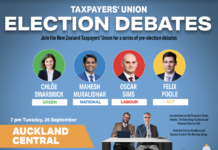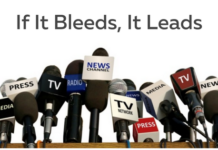Yet more pressure is coming on Pharmac to fund an additional range of cancer drugs. This time it is a letter publicised by oncologists (cancer specialists) to Pharmac. Part of the letter says:
Medical oncologists and nurse practitioners who treat gastrointestinal cancers continue to be frustrated by the increasing gap between what is available and funded for New Zealand patients with gastrointestinal cancers and what is available in similar jurisdictions – for example Australia’s PBS or UK’s NICE. This is now impacting on New Zealand patients’ ability to access clinical trials as the standard of care arm is frequently now not funded in GI cancers. We are barely keeping pace with the WHO’s essential medicine list.
We hold out hope for opportunities for increasing access via biosimilar cost savings.
This disparity presents challenges to patients and their whanau as self-funding at “retail” is out of the reach of most except the wealthiest including, as it must, by Ministry of Health edict, the administration costs in a private day unit also. This serves to further exacerbate the inequity in outcomes between underserved populations and the privileged.
The subsequent moral injury experienced by involved clinicians cannot be underestimated. Knowing that patients are no longer receiving cancer care as per international guidelines and being powerless to effect change is increasingly common. Please do not accept our silence as compliance.
One can understand the frustration of medical specialists working in a healthcare system which “exacerbates the inequity in outcomes between underserved populations and the privileged” when it comes to availability of cancer drugs but in attacking Pharmac they are attacking the messenger rather than the two root causes of the problem which are:
- The outrageous pharmaceutical company charges for these modern drugs (or for older drugs for that matter!) All of us will accept that new leading-edge drugs are costly to develop with long-lead-in times before they become available but when drug companies are still spending more on advertising drugs than on research and development we know we have a serious moral and ethical crisis at the heart of the pharmaceutical industry.
- The failure of successive New Zealand governments to tax the unearned incomes of the wealthy. Wealthy New Zealanders spend less that half the proportion of their income in tax than those on the lowest incomes. If they were taxed at the same rate as workers there would be plenty of money for the whole range of treatments available through modern drugs – not to mention the desperate needs for funding right across our public services.
By focusing on Pharmac the oncologists are doing the drug companies’ promotions for them. Likewise election campaign promises from political parties for more funding for Pharmac are a short-term fix which again does nothing the address the root causes of the problem.
Without big increases in drug funding each year “…we’ll just keep falling behind in the way that we are at the moment” says Gut Cancer Foundation executive officer Liam Willis.
A chilling view comes from ACT candidate Todd Stephenson who has called for Pharmac to take a “productivity focus” to decisions on who gets funded medicine. Stephenson is No 4 on the Act Party list and has recently returned to New Zealand after more than a decade working in the pharmaceutical industry in Australia.
“A lot of the treatments and the innovations being brought forward can actually deliver economic benefits because you’re treating people who can work longer or go back to work when that wasn’t possible.”
“It would be good to be able to take a more holistic approach to what these treatments are bringing.”
When asked if that meant more economically productive people should be prioritised for treatment, Stephenson said: “Not necessarily, but when you’re looking at the value of these treatments, that should be taken into consideration.”
How Orwellian is that? Reading between the lines here means prioritising “productive” people for drug treatments ahead of the retired, beneficiaries and low-wage workers.
It’s not hard to see where this policy leads…





Good article John – maybe more countries will just do China and India and just copy the ingredients and sell them cheaper to their people. OOPPs – we can’t due to TPP and not ratifying enough for USA.
The Pharmac issue comes back to NZ being a relatively poor nation with a low productivity economy, so we can’t afford the First World’s pharmaceuticals.
We are not quite Third World yet, but definitely heading that way.
We are not and have never been a ‘poor’ nation!
‘relatively’
yes, even the 2nd richest country is poor relative to the richest country – your comment makes total sense!
The US is listed as the wealthiest country in the world, their debt is two and a half times their GDP.. They have enormous debt.
In Jacinda we got a look at the brand new state of rogernomics hammering home all of the inefficiencies, all of the bureaucracy and all of the failures keeping The National and Labour Partys stuck below 40 in the pokes from the ineptitude of meth testing, public housing sell off to light rail to billions spent on “administration” to their obvious favouritism of entrenching wealth to there baffling naive approach.
It is sad that you all keep clinging on to such obsolete concepts. Meanwhile, I will enjoy life in a capitalist society namely Australia with a sane economy that takes care of its employees as a way to get more profits out of the system.
While you gonks go out of your way to destroy New Zealand’s private economy, and to piss off the only country that could use its shitty people, and to not invest its low and broad tax rate into an actual economy.
Wrong The additional money Pharmac needs is already being spent within the health system in additional unnecessary costs to the tuner of $18 for every $1 not spend on meds and additional social costs in excess of $36 for every dollar not spent on meds.
Is pharmac funded by a massive wud of cash every year or do doctors say this guy needs xyz here’s the bill. We all know it’s the former.
I saw crACT’S no.4 interviewed by Tame.His eyes were darting all over the place.
Parachuted in from Oz ,just in time for an election.
Was it opportunistic?Hell……no! 🙂
Actually Dr Des Gorman has suggested a geographical purchasing model (he saw in the middle east) whereas countries get together to bulk purchase pharmaceuticals. The pharmac model works to a point, but if we could pool our purchasing power with Australia, Singapore or Malaysia imagine the purchasing power we could have then?
What does it feel like to be a slave, a minion, a servile cretin slobbering at the feet of the pudgy financially rich who’ve strove to get to the view from where they can look down upon us as we kiss their feet or their arses. They see us as their possessions, their target market, their property, their right.
This vile thing we see unfolding is living proof in support of the old saying; “In times of peace we must be ever vigilant.”
In my less than humble opinion because fuck them! is that we urgently need compulsory workforce unionism and we must mandate voting. Then, lets talk freedoms.
Well you could buy the same medicine from Big Pharma or Cuba. Rational economics and neoliberalism says you buy it from the lowest cost supplier.
A post on my Under Funding of Medicines group page in Dec 2020.
It is worth a read.
https://www.facebook.com/groups/171564126882442/permalink/679495709422612/?app=fbl
https://www.facebook.com/groups/171564126882442/permalink/679495709422612/?app=fbl
The link to my previous comment .
Again with this old argument. I am no ACT supporter at all but….
I would say a number of the medicines that have not been funded, sit on Pharmac’s prioritisation list. That means they have been assessed as worth funding if they had more budget. In other words Pharmac’s own assessment deems them as cost effective but they don’t have a budget for all of them. So the “outrageous price” argument is a non starter. Pharmac won’t pay anything remotely close to the published list price.
Secondly there is a valid argument that economic assessments don’t take into account the benefits of funding some medicines. Some medicines will enable people to continue to work (and pay tax) or reduce use of hospital facilities, or in the case of say MS drugs reduce the burden on providing physical care etc.
It might sound cold to reduce a persons disease to economic assessments and numbers but believe me that’s what Pharmac does. Ask Pharmac why a years worth of a persons life is less in their modelling than it is for NZTA when costing road improvements?
AND the wealthy in NZ have health insurance to the nth degree or have their own vast savings to pay for any illnesses they need to have treated immediately in the private system. Frankly, they don’t give a thought to the plebs who are forced to use the ailing, overcrowded, under-staffed public health system.
And Labour cannot be blamed anywhere near like the previous National government should be the blamed.
In the John Key years Tony Ryall and Jonathan Coleman deliberately ran down the public health system and stealthily built up the private hospital and health system. One evidence is when National lost in 2017, Coleman quickly jumped ship and became a CEO of a private health conglomerate. How convenient that the public system was so run down at the end of the Key years that it gave the then Nat Minister of Health a cosy, well-paid position in the private health sector.
No care, no responsibility – that’s the Nats slogan when it comes to public health policy.
I have private health insurance as the NZ voters pick shit Governments that would struggle to even recognise a band aid but I still pay a LOT of tax which is used to pay for those without insurance to get access to health care. In fact those who pay private insurance are the heros as they unload the system meaning better access to those in need.
Your welcome.
For the record, I too pay health insurance (I’ve reduced the cover it as much as I can, so have an excess to pay in the event of surgery) but every year the premium increases well above the rate of inflation so I’m left wondering why the few doctors who practice in both the public sector and private sector are striking for more pay etc. They get paid very well indeed by the private health sector if the bills I received post-op are accurate.
You and me are among the few fortunate ones, PB. Most are not nearly as fortunate , thanks to the previous National government’s health legacy.
Surgeons are one group. Private Oncologist do rather well between private and public and there are more than a few of them. Ironically it’s Pharmacs’d non funding of oncology medicines, particularly intravenous formulations, that create this opportunity. It has been an odd situation that many of those with Southern Cross coverage find their policies won’t cover oncology medicines that Pharmac don’t fund anyway! That’s changed with more insurance competition.
I hope the drugs they are funding actually work in independent clinical trials. The fact is the majority (68%) of cancer drugs do not actually work.
“After a mean follow-up of 6.6 years after reimbursement, only 32% of the 22 drug indications had available evidence supporting improvements in OS or QoL.”
https://link.springer.com/article/10.1007/s40261-023-01285-4
Hopefully Pharmac is not funding any of these insanely expensive cancer drugs that can’t offer nothing more than hope.
That’s not necessarily what this paper says. It’s says drugs for 22 indications were funded with limited overall survival data at the time they got funding. What were the actual end points of the studies that supported reimbursement? Following up later and pointing out some still don’t have published overall survival data doesn’t mean you can say the drugs don’t work. You could say overall survival is unknown. Certain trials can take quite some time to reach the point where you have enough incidence of mortality to call overall survival. That’s been the case with some molecules targeting mutations in lung cancer for example. Some funding authorities decide alternative end points are acceptable versus traditional overall survival, that is clear.
A country that makes poor decisions ends up poor and cannot afford nice things, like cancer drugs.
Well apparently we couldn’t afford them under Key so he was making poor decisions too. Oh apart from funding Herceptin properly which Key didn’t even pretend was anything other than gaining female votes. Then once elected he told everyone politicians shouldn’t interfere in Pharmac funding decisions.
there’s also the wildcard of ‘patient’ astroturf groups funded by who knows, using blackmail to get expensive drugs often with minimal extra benefits (if any) funded
That’s simply not true in New Zealand. Pharmac might be tight arses but they are not stupid.